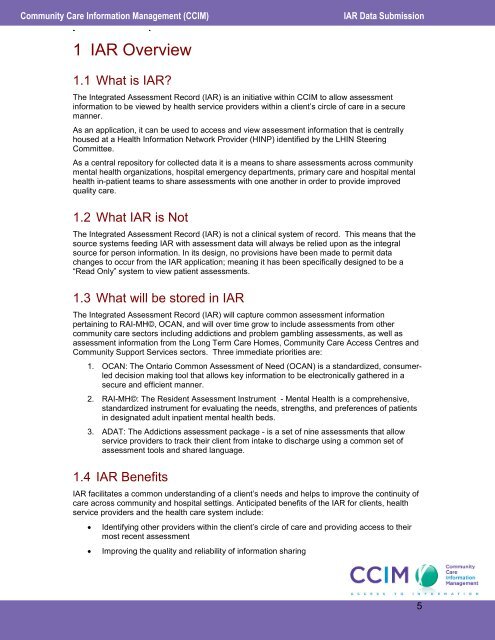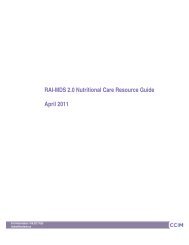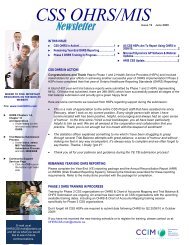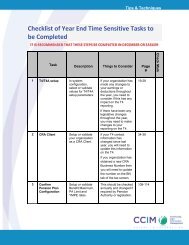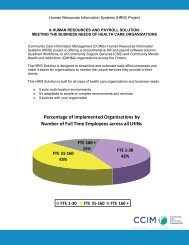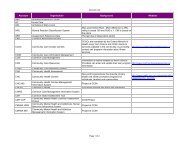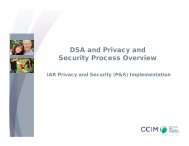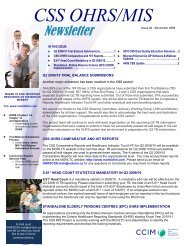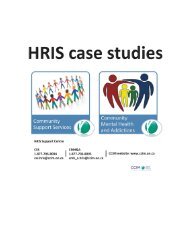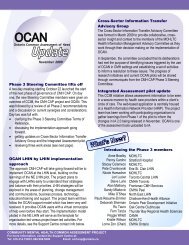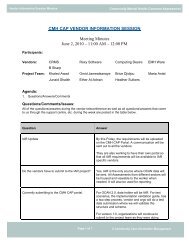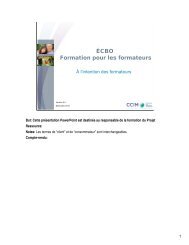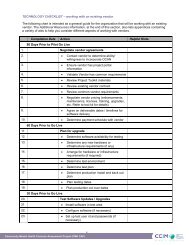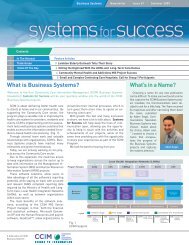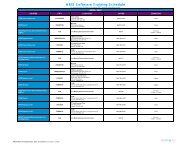Data Submission and Technical Specifications (PDF - CCIM
Data Submission and Technical Specifications (PDF - CCIM
Data Submission and Technical Specifications (PDF - CCIM
You also want an ePaper? Increase the reach of your titles
YUMPU automatically turns print PDFs into web optimized ePapers that Google loves.
Community Care Information Management (<strong>CCIM</strong>)<br />
IAR <strong>Data</strong> <strong>Submission</strong><br />
`<br />
1 IAR Overview<br />
1.1 What is IAR<br />
`<br />
The Integrated Assessment Record (IAR) is an initiative within <strong>CCIM</strong> to allow assessment<br />
information to be viewed by health service providers within a client’s circle of care in a secure<br />
manner.<br />
As an application, it can be used to access <strong>and</strong> view assessment information that is centrally<br />
housed at a Health Information Network Provider (HINP) identified by the LHIN Steering<br />
Committee.<br />
As a central repository for collected data it is a means to share assessments across community<br />
mental health organizations, hospital emergency departments, primary care <strong>and</strong> hospital mental<br />
health in-patient teams to share assessments with one another in order to provide improved<br />
quality care.<br />
1.2 What IAR is Not<br />
The Integrated Assessment Record (IAR) is not a clinical system of record. This means that the<br />
source systems feeding IAR with assessment data will always be relied upon as the integral<br />
source for person information. In its design, no provisions have been made to permit data<br />
changes to occur from the IAR application; meaning it has been specifically designed to be a<br />
“Read Only” system to view patient assessments.<br />
1.3 What will be stored in IAR<br />
The Integrated Assessment Record (IAR) will capture common assessment information<br />
pertaining to RAI-MH©, OCAN, <strong>and</strong> will over time grow to include assessments from other<br />
community care sectors including addictions <strong>and</strong> problem gambling assessments, as well as<br />
assessment information from the Long Term Care Homes, Community Care Access Centres <strong>and</strong><br />
Community Support Services sectors. Three immediate priorities are:<br />
1. OCAN: The Ontario Common Assessment of Need (OCAN) is a st<strong>and</strong>ardized, consumerled<br />
decision making tool that allows key information to be electronically gathered in a<br />
secure <strong>and</strong> efficient manner.<br />
2. RAI-MH©: The Resident Assessment Instrument - Mental Health is a comprehensive,<br />
st<strong>and</strong>ardized instrument for evaluating the needs, strengths, <strong>and</strong> preferences of patients<br />
in designated adult inpatient mental health beds.<br />
3. ADAT: The Addictions assessment package - is a set of nine assessments that allow<br />
service providers to track their client from intake to discharge using a common set of<br />
assessment tools <strong>and</strong> shared language.<br />
1.4 IAR Benefits<br />
IAR facilitates a common underst<strong>and</strong>ing of a client’s needs <strong>and</strong> helps to improve the continuity of<br />
care across community <strong>and</strong> hospital settings. Anticipated benefits of the IAR for clients, health<br />
service providers <strong>and</strong> the health care system include:<br />
• Identifying other providers within the client’s circle of care <strong>and</strong> providing access to their<br />
most recent assessment<br />
• Improving the quality <strong>and</strong> reliability of information sharing<br />
5


